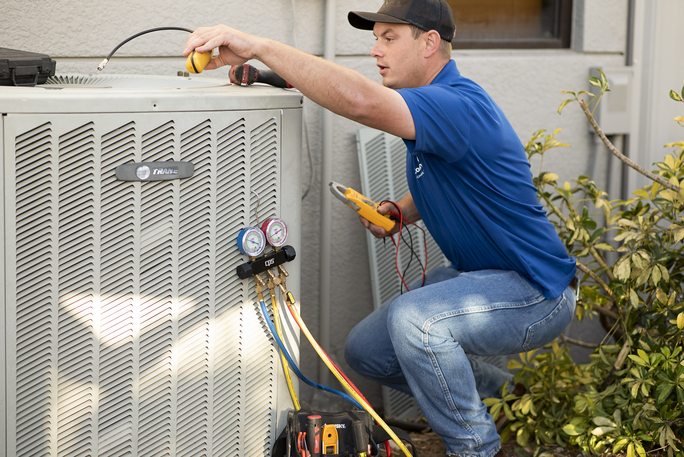
You will need to fulfill several requirements if you are interested in becoming a ct electrical contractor. These requirements include an apprenticeship, exam, liability insurance, as well as a license to do unlimited electrical work. Also, you will need to be certified by the National Electric Code (NEC). After you earn your license, it is necessary to renew it every year. You also need to complete continuing education courses.
Apprenticeship
The Connecticut electrical industry offers a variety of apprenticeship programs. Some are union-based, while others are not. Both offer experience and training. Many apprenticeship programs are managed by the International Brotherhood of Electrical Workers Local 488, which is part of an international training program. These programs are designed to help students land professional positions after they complete five years of training.
Connecticut has a strong demand for electricians. Connecticut is a great place for an electrical career. The state's Department of Labor estimates that the number of electrical jobs in the state will increase by 12.8% by 2024. Anyone interested in becoming CT electricians may take advantage this opportunity by enrolling in an apprenticeship program through a Connecticut electric contractor.

Exam
Preparing for the state's exam is essential if you want to pursue a career in CT as an electrician. The exam covers electrical knowledge and branch and service circuits. It also covers bonding, grounding and raceways. The exam also covers low-voltage system and illuminated signs. It costs $65, and you must pre-approve it. For your contractor license to be issued, you must pass a legal and business exam.
After becoming a journeyperson, electricians in Connecticut can get an electrician's license and begin practicing as an electrical contractor. An E-1 unlimited license for electricians allows them to do electrical work and manage a business. You must have completed at least 8,000 hours on-the-job training, and at least 144 hours in electrical training classes per year to earn a journeyperson's license. You can enroll in an apprenticeship or attend a local electrician school.
Liability insurance
Connecticut electricians have the option of liability insurance. It can provide valuable coverage. The coverage not only protects your business from potential lawsuits but also covers you for legal defense costs if you are found guilty. You should also have commercial auto coverage if your commercial vehicle is operated. This will cover medical costs and damage to property. Personal auto insurance policies will not cover the business activities of an electrician.
Electricians use their own vehicles to travel between jobsites and clients. This means they must drive a lot. To protect against the theft of other people's property or damage, a commercial vehicle insurance policy is essential. It can also protect cargo from damage or loss. Additionally, if an electrician works for a company, he will need workers comp insurance as well. This insurance will pay for the medical bills of employees who have been injured on the job.

To become a ct electricalian
To become a Connecticut electrician licensed, you must complete an apprenticeship. You must be at minimum 18 years old, have a high-school diploma, and be eligible for an apprenticeship. If you're 16 and are enrolled in a vocational school, you can begin classroom and practical classes before you turn 18. There will be a $110 fee to register and 720 hours of classes. You must also work for 8,000 hours under the supervision of an electrical contractor before you're licensed.
After you complete your apprenticeship, you must pass both a business and legal exam. After passing your apprenticeship, you will need to pass a licensing exam. You'll also have to pay a $150 fee. A specialty license allows you to specialize in one area of electric work. The specialty licenses are more focused and require less experience.
FAQ
How do I obtain a service agreement?
A standard form for SCA can be obtained at your local government. You could also use our online quotation generator to learn more about your requirements, and then send us details so that we can get in touch with you for further information.
Who pays for the service?
The SCA will specify which party is responsible to pay for the service. If the service provider is not paid in full, it may have grounds to claim compensation through the courts.
Is there an upper limit on how much I can spend?
No. No. You may be able negotiate a lower price from the contractor.
Are there any additional things I need to consider?
Yes. Make sure to check your local laws about what type of projects you can do and what conditions you have to comply with. Some states require you to get approval from the council to build. Other states require that you notify the council of your plans. Find out the position of your local authorities on this matter by checking with them.
Who creates a Service Agreement
Your service agreement with your customer defines the services you will offer them. This agreement outlines your customer's responsibilities and what you must do for them. It also explains when you have to pay them.
Additional fees for services may also be confirmed in the service agreement.
A service agreement should include all the terms and conditions that apply to the contract. This includes delivery dates, payment methods, warranties and other terms.
This template will help you cover all aspects of the agreement.
Statistics
- (v) Place or places of performance of the prime contract and first-tier subcontracts estimated at $10 million or more, if known. (acquisition.gov)
- While we offer all our high-quality services at competitive prices, we know that many who need our services are on fixed incomes, so we offer a 10 percent discount for seniors and military members. (homeservicecontractorsinc.com)
- (ii) Name, address, and telephone number of each proposed first-tier subcontractor with a proposed subcontract estimated at $10 million or more. (acquisition.gov)
- (3) The contracting officer may provide for a contract price adjustment based solely on a percentage rate determined by the contracting officer using a published economic indicator incorporated into the solicitation and resulting contract. (acquisition.gov)
- (d) Contractor disputes related to compliance with its obligation shall be handled according to the rules, regulations, and relevant orders of the Secretary of Labor (see 41 CFR60-1.1). (acquisition.gov)
External Links
How To
How do you write a good service agreement?
It is important to remember that you must satisfy two requirements when writing a good service agreement.
First, you must satisfy the requirements of the customer.
Second, you must comply with all legal requirements.
It is important to ensure that you have the following items covered by your service agreement.
-
Identify the parties.
-
Define the subject matter.
-
Specify the duration of agreement.
-
Check whether warranties are offered.
-
Define the obligations and liabilities for both parties.
-
Set the payment method.
-
Clearly explain how disputes will be resolved.
-
Please provide details regarding any restrictions or special instructions.
-
Both parties must sign the contract.
-
Include a clause to state that the agreement has already been read and understood.
-
It is important that you keep a copy of your agreement.
-
Before you send your service agreement to the buyer, ensure that you carefully review it.
-
If you have any concerns about the agreement, please contact your supplier immediately to fix it.
-
After everything is fixed, you can send off the revised version.
-
After the buyer confirms that they have accepted the changes, you should not sign the agreement.
-
Keep a duplicate of the original agreement, as well the finalized one.
-
Make sure you are aware that service providers in certain countries have legal responsibility for ensuring their customers receive high quality services.
-
Keep a log of all correspondence between you and your customer in case of dispute.
-
Professional advice is always a good idea when you are drafting a service contract.
-
Be aware that the buyer could request an amendment to the contract terms after they have been accepted.
-
Always confirm that you have read and understood the change request before you accept it.
-
Always confirm any request for changes before accepting.
-
Tell the customer why you don't want to accept the change.
-
If you still do not agree, then inform them that the change is unacceptable.
-
If the customer does not accept your decision, you can refuse to sign the contract.
-
Once you have accepted the decision of the customer, you can then complete the contract.
-
You must agree to any change to the contract terms if you have previously agreed.
-
Before you send the contract out, ensure you have thoroughly read it.
-
You must also ensure it conforms to the law.
-
Send it to the buyer once you have signed the contract.
-
Keep a copy for future reference.
-
You could lose money if you fail to comply with any of these simple rules.
-
It does not take long to write up a good service agreement.
-
The better, the more detailed.